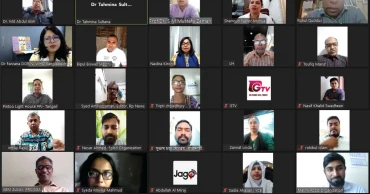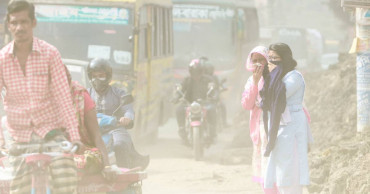Health risks
Jinjira’s counterfeit drink factories thrive as Ramadan begins
As Ramadan progresses, markets are witnessing a surge in counterfeit and adulterated food products, particularly fruit juices and glucose drinks manufactured in Jinjira – a Dhaka suburb infamous for producing fake goods.
From machinery and automobile parts to cosmetics and food items, Jinjira has long been associated with counterfeit production, earning the dubious reputation of being the country’s hub for imitation products.
With demand soaring during the holy month, unscrupulous traders are flooding markets with these adulterated items, posing severe health risks, especially for consumers in rural areas.
Despite repeated warnings from health experts about the dangers of consuming such products, enforcement efforts have remained inadequate, allowing this illicit trade to persist.
Health Hazards of Adulterated Drinks
Medical professionals have raised alarms over the serious health implications of consuming counterfeit drinks.
Dr Rozina Amin, Associate Professor at Sir Salimullah Medical College (Mitford Hospital), said, “Adulterated drinks containing artificial colours are extremely harmful. They primarily damage the liver and kidneys while also reducing insulin levels in the body.”
She warned that such drinks are particularly dangerous for children due to their excessive sugar content.
Dhaka emerges as a hub for counterfeit products
Advising consumers to be cautious, Dr Amin suggested, “Homemade juices prepared with fresh local fruits are a far safer alternative during Ramadan.”
Illegal Factories Operating Without Oversight
A visit to areas such as Gadabag, Muktir Bag, Amirbagh, and Shubhda in Keraniganj reveals that illegal factories are operating in cramped, unhygienic conditions.
Workers, often without gloves or hairnets, are seen bottling counterfeit juices. With fans switched off to prevent powdered drink mix from scattering, the suffocating environment leaves workers drenched in sweat.
Shakil Ahmed, a manager at one such factory, insisted they had clearances from the Bangladesh Standards and Testing Institution (BSTI) and environmental authorities. However, when asked to provide documentation, he failed to do so.
He admitted that the factory lacked a laboratory but dismissed health concerns, saying, “The weather in Bangladesh is very good. Everything gets digested here. We have been selling these products for years without complaints.”
Awareness needed above all to avoid adulterated food
Lack of Stringent Action
Although previous raids by the Rapid Action Battalion (RAB) and mobile courts had temporarily disrupted operations, these factories have swiftly resumed production, exploiting the absence of sustained enforcement.
Local sanitary inspector Shahinur Rahman acknowledged receiving reports about these illegal factories, often set up in rented flats, but stressed that raids require the presence of executive magistrates.
Mobile Court shuts down counterfeit saline factory in Faridpur
“The Upazila Nirbahi Officer (UNO) has been informed and necessary actions will be taken soon,” he added.
UNO Rinat Fauzia reaffirmed the gravity of the issue, stating, “Producing adulterated food is a serious crime. We will conduct raids promptly to shut down these illegal operations.”
A Call for Immediate Action
Jinjira’s unchecked counterfeit industry highlights the persistent challenges in tackling food adulteration. With public health at stake, experts stress the urgent need for coordinated action between regulatory bodies, law enforcement agencies, and the community to ensure food safety and protect consumers from harmful products.
11 months ago
Healthy dietary habits can reduce hypertension-related health risks: Experts
Public health experts at a webinar on Sunday said the risks of various non-communicable diseases, including hypertension-related heart ailments and deaths, are increasing among the population of Bangladesh due to lack of healthy eating habits.
They also said unhealthy diets and lack of adequate physical activity are responsible for 30 percent of the world's non-communicable and preventable diseases and deaths, including the morbidity and mortality caused by hypertension.
Public health experts and heart specialists made the remarks at the webinar titled “Eating Habits, Hypertension and Heart Disease Risk and the Needful”, organised by research and advocacy organisation PROGGA with support from Global Health Advocacy Incubator (GHAI), marking the World Food Day 2022.
World Food Day is observed in Bangladesh as elsewhere across the globe on Sunday to highlight the millions of people worldwide who cannot afford a healthy diet and the need for regular access to nutritious food. The theme for 2022 is ‘Leave no one behind.’
Speaking at the webinar, Professor Dr Md Abdul Alim, a member (Food Industry & Production), of the Bangladesh Food Safety Authority, said foods containing an excessive amount of trans fats increase the risk of hypertension. “The trans fat regulation passed by the government will be implemented within the stipulated time.”
Dr Tahmina Sultana, Director of Primary Health Care (PHC) and Integrated Thana Health Complex (ITHC) at the Director General of Health Services (DGHS), said that hypertension treatment is being provided in some community clinics, which will be gradually spread across the country.
Shamsun Naher Nahid Mohua, Head of Nutrition at the Department of Diet and Nutrition of BIRDEM General Hospital, said that the risks of hypertension and heart diseases can be reduced by avoiding foods containing excessive saturated fat, trans fat and salt.
Dr SM Mustafa Zaman, Professor at the Department of Cardiology at the Bangabandhu Sheikh Mujib Medical University (BSMMU), said the promotion of the DASH diet or Dietary Approaches to Stop Hypertension and healthy dietary guidelines formulated by the government should be increased to control hypertension.
Muhammad Ruhul Quddus, Bangladesh Country Lead of Global Health Advocacy Incubator, said that GHAI along with its partners is doing advocacy with the government to spread hypertension treatment facilities at community clinics across the country.
The speakers also said one in every five adults in Bangladesh suffers from hypertension, which is very alarming. “There’s no alternative to ensuring the availability of medicines at the community clinic level to combat the prevalence of hypertension across the country and the necessary budget allocation also must be ensured in this regard.”
3 years ago
DNCC operates anti-mosquito drive at 20 hospitals
Dhaka North City Corporation (DNCC) on Thursday sprayed its anti-mosquito fogger in 20 hospitals to minimize the health risks to medical professionals and patients.
5 years ago
DNCC: Anti-mosquito drive operated at 31 hospitals
Dhaka North City Corporation (DNCC) on Tuesday sprayed its anti-mosquito fogger in 31 hospitals to minimize the health risks to medical professionals and patients.
5 years ago
U.S. researchers develop AI-enabled app to assess COVID-19 infection risks
U.S. researchers are working on an app equipped with machine intelligence that enables an individual to get an at-home risk assessment of the COVID-19 infection in about one minute, a new study said.
5 years ago
Air pollution should be treated as national crisis: Environment Minister
As Dhaka is grappling with air pollution posing serious health risks to city dwellers, the government has taken a series of measures to fight and protect the environment, says the environment minister.
6 years ago


.jpg)
.jpg)



